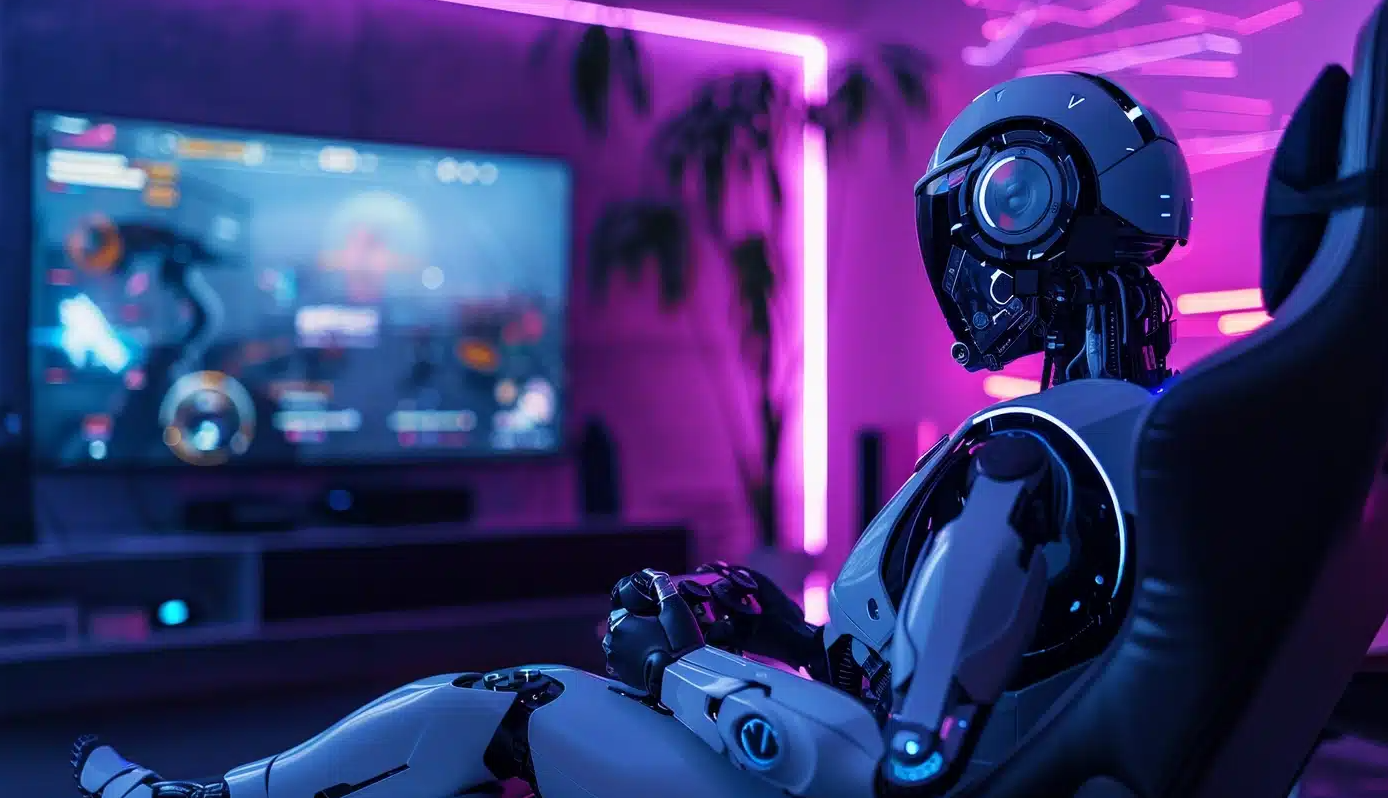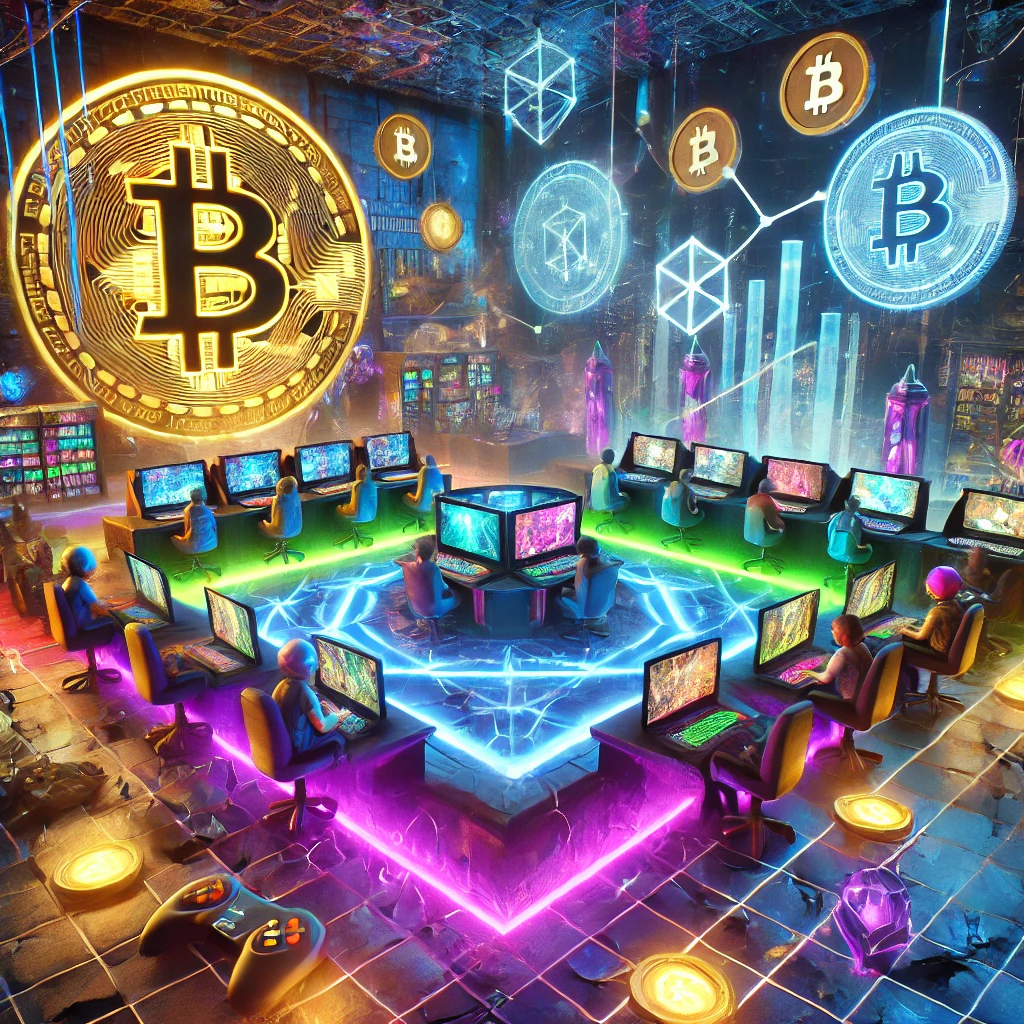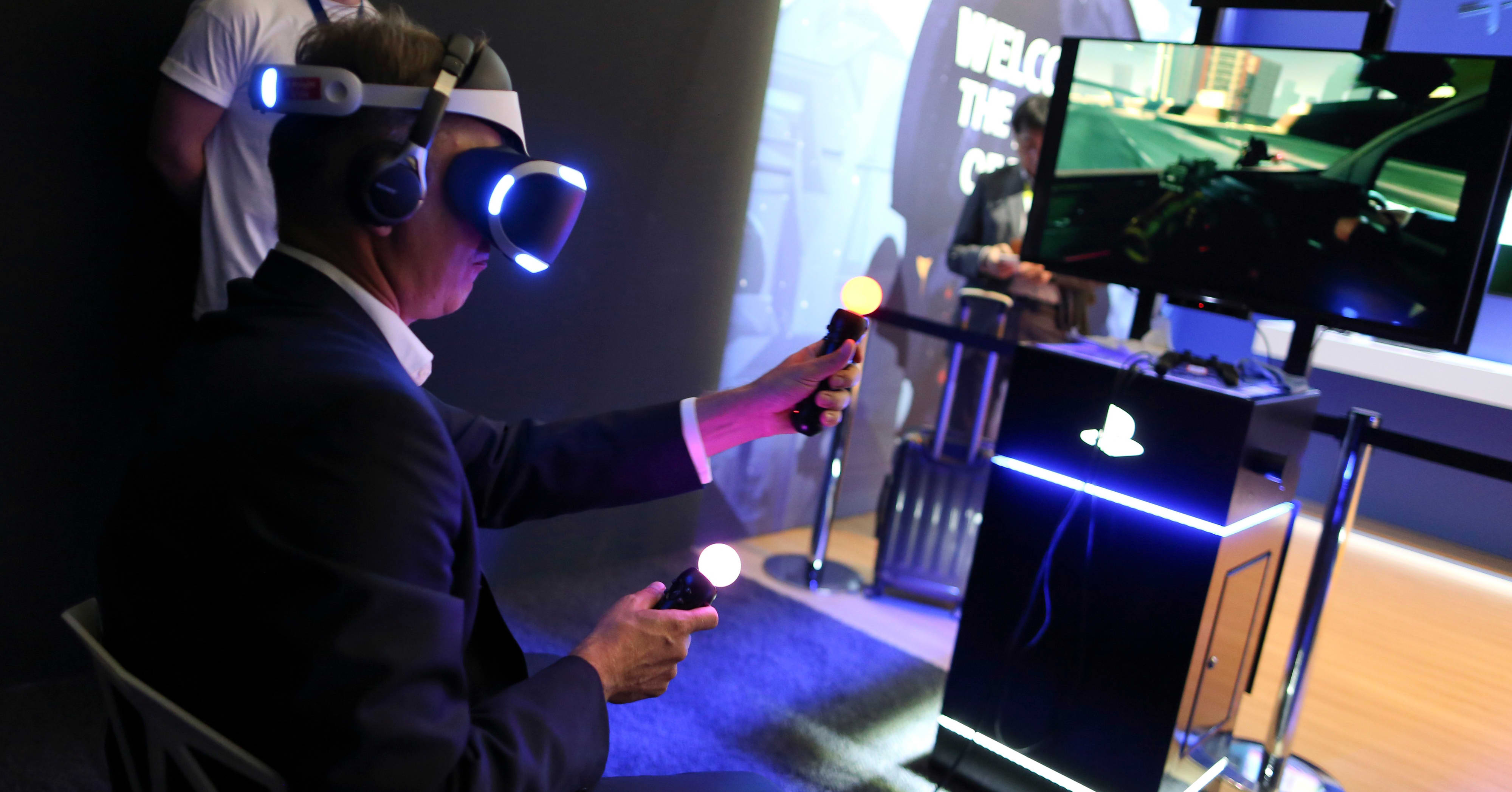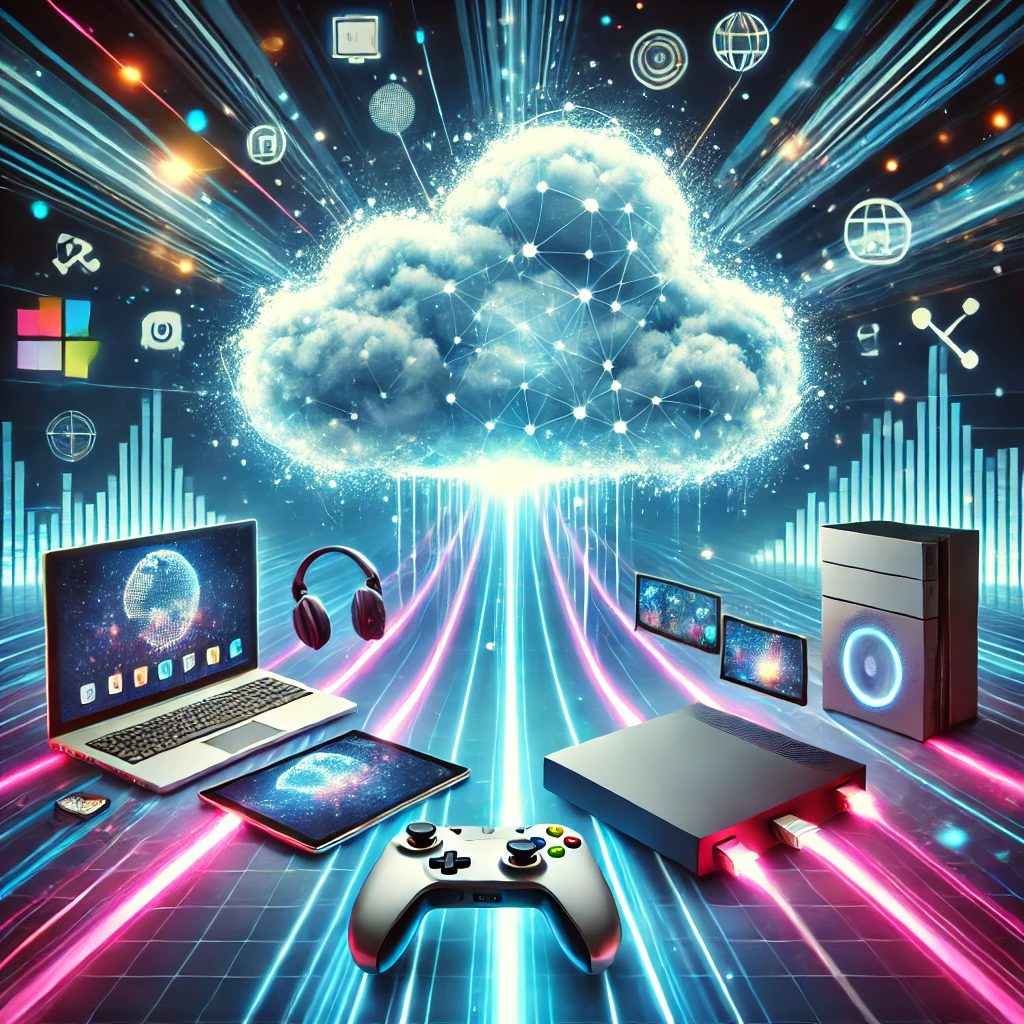Artificial intelligence technology is no longer exclusive to major mainstream game companies in the gaming industry. Nowadays, it appears even in the indie game market, as one of the main crucial game tech elements worldwide. AI technology boosts indie game development and improves game experiences by providing intelligent tools that allow developers to push the boundaries of creativity and create complex and miniature worlds. In this article, the meaning of indie game development will be discussed, Finally, we examine if indie game developers should be happy about the AI possibility in the game industry or not.
What is Indie Game Development?
Before examining AI technology’s role in the indie game ecosystem, we need to gain an overview of the indie game definition and its functions.
The word indie games mostly reminds people of very poor disappointed game developers like weird creatures who are rejected by mainstream game companies and are busy with some stupid ambitions that lead them to create tiny unimportant games. It is not true. The indie game ecosystem guarantees the future of the gaming industry focusing on innovations and experimental gameplay. They are not limited by the market demands to gain enormous funds. So, game developers stand on their spots and rely on digital possibilities to publish and monetize their products to take more risks and push boundaries, things that mainstream game development should be more conservative about.
Therefore, Indie game development could be characterized by these factors in general:
- Financial independence
- Thought independence
- Small team building
- Lower budget
- Innovation
- Creativity
- Inclusive culture and thoughts
- Artistic experimentation
These factors fulfill the indie spirit of the gaming industry. The limitation of budgets drives indie game developers to hire simple graphics by the retro style of the 8-bit and 16-bit generations which sometimes puts them into the category of classic games. To dive into indie game development’s role in the gaming industry, read our blog post about”…”.
Despite these characteristics, the main question would be how AI would be used in indie game development.
What are the Benefits of AI in Indie Game Development?
There is no doubt that AI technology serves indie game development in several ways that cause this ecosystem to take a significant step further in achieving its visions.
Real-time Adoption
Imagine the possibility of analyzing gamers’ performance and abilities to pass each step and adjusting the difficulty based on the results. It is fantastic, isn’t it?!
AI technology offers the opportunity to boost players’ experience and satisfaction by collecting their data and enhancing game mechanics and challenge weights in real-time. Furthermore, real-time learning adapts the game based on player preferences, which is another benefit of using AI in indie game development. How does AI adopt the narration and environment of the game automatically?
Adoptive Narration
AI technology enhances the process of adopting game narration according to players’ desires, behaviors, and choices. Players might encounter several solutions to tackle game challenges and decide about that based on their personality, experiences, talent, desires, and worldwide. So it’s needed to create many narrative possibilities that push them toward their choices and consequences. AI generates non-linear stories which make every gaming session different and unique. Narrating adoptively by AI technologies brings certain advantages to the indie game developers’ table, including:
- The possibility of designing a rich and in-depth storyline
- Saving more time in the storytelling process
- Engaging gamers to see the consequence of their choice
- Creating various tones of voice according to gamers’ emotional behaviors
These are all fulfilled by the AI ability that enhances the indie game creative approach and empowers them to compete with the mainstream game industry.
AI-driven character animation
To get more details about AI-driven character animation, check platforms like Rebellis.ai that enhance the animating character process by AI technology functions. In the case of character animation, there is no need to draw by hand. If you trust AI-driven character animation, you achieve:
- Higher character resolution
- Create smooth transitions and actions
- Expressive and realistic character movements
- Reducing the time and resources required to animate characters
- Ability to adapt characters based on gamers’ physical situation
AI-driven character animation significantly boosts the indie game development process by encountering mainstream perfectionism. An indie game developer doesn’t need more human resources and budget to compete in the market because AI technology is here to enhance the character animation process.
AI-Enhanced Sound Design
Sound designing often is mentioned as a complex and complicated part of indie game development that needs a lot of costs and human resources. But AI makes it cost-effective and qualifies it. The extensive audio environment always matters and is significant. AI enhances the possibility of producing dynamic sound designs according to the different dramatic steps of a game. In this case, AI analyses automatically visual and thematic factors and creates an integrated sound experience during game playing. In other words, AI develops gamers’ experience through
- Intensity and tempo adjustment
- Heightening tension
- Testing to ensure clarity and quality across different devices
- Adjusting sound levels and mixing audio tracks
These all cases boost the emotional connection with the game environment and make the gamers’ experience more immersive.
Procedural Content Generation(PCG)
PCG refers to AI’s ability to generate content independently including landscapes, levels, assets, and items. Although cost-effective functions, The PCG value is mostly related to the flexible algorithms and mechanisms that AI offers to the indie game industry to automatically analyze gamers’ behaviors and adjust settings, sounds, storylines, etc. based on.
Enhanced Non-Player Characters (NPCs)
AI can improve NPC behavior by making them more responsive and intelligent. This can lead to more immersive interactions, where characters adapt to player decisions and actions, enhancing the storyline and gameplay.
AI-driven Quality Assurance
By stimulating more than a thousand styles, AI serves the game testing process and fixes them. Therefore, AI guarantees well launching process by
- Boosting the speed of the process
- Creative testing process
- Prioritizing the potential bugs and problems
The cases above save time and resources and ensure a smoother launch.
AI empowers indie game developers to reach the indie game development visions and make it more efficient. Can you add more advantages that AI technology puts forward to the game industry? Please write in the comments.
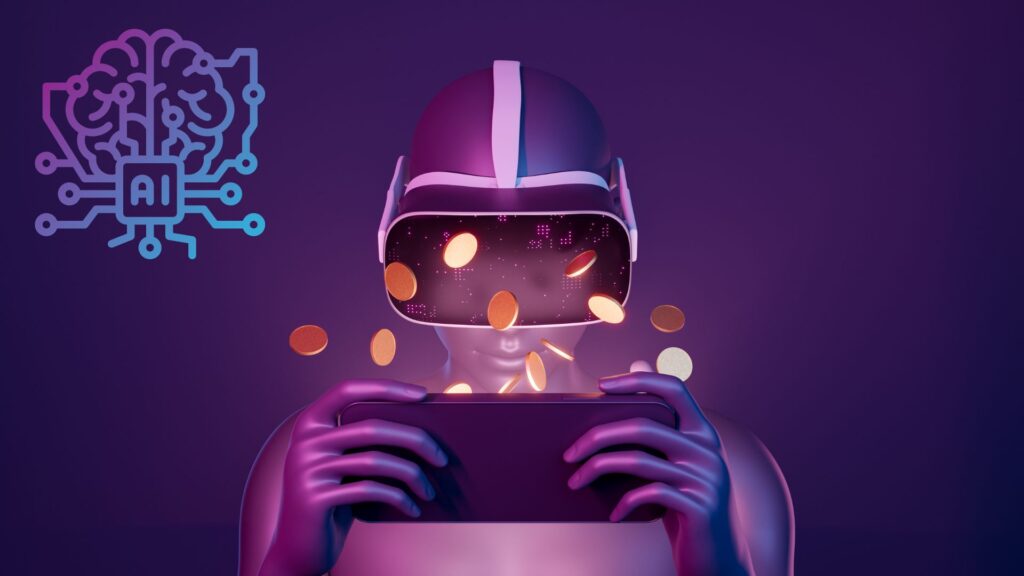
How Does AI Self-Critique its Role in Gaming?
To picture a holistic overview of AI’s role in the future of the game industry, it is necessary to cover the drawbacks of AI technology when talking about that role in the field of games. But let me outsource this part of the article to the AI chat GPT and lead it to self-critique.
Lack of Genuine Intelligence
While AI can simulate human behavior, it often lacks true understanding or creativity. This can result in predictable NPC (non-player character) behavior, reducing immersion for players.
Over-reliance on AI
Game developers may become too dependent on AI for content generation or balancing, potentially stifling creativity. If AI is used excessively, it may lead to repetitive gameplay or uninspired game mechanics.
Ethical Concerns
The use of AI can raise ethical issues, especially regarding data collection and player privacy. AI systems often require extensive data to function well, which can threaten users’ anonymity and consent.
Game Balance and Fairness
AI can create challenges that might be unfair to players or difficult to balance. For instance, if AI-controlled characters are too powerful, they can frustrate players and detract from the gaming experience.
Job Displacement
As AI automates certain aspects of game development, there are concerns about job displacement within the industry. Roles in game design, testing, and other areas may be at risk as AI technologies evolve.
High Development Costs
Implementing advanced AI systems can be costly and time-consuming. Smaller developers might struggle to compete, leading to a homogenization of game content as larger companies with greater resources lead the field.
Complexity in Development
Integrating AI into games can lead to increased complexity in both design and debugging processes. This might result in longer development times and more potential for bugs.
Negative Impact on Multiplayer Experiences
In multiplayer games, overly sophisticated AI may disrupt the balance between human players, leading to frustrations if AI characters behave inconsistently compared to human players.
Addiction and Manipulation
AI algorithms in gaming, particularly in free-to-play models, can exploit behavioral patterns to encourage addiction or excessive spending, leading to ethical concerns about player welfare.
Limited Scope of Interaction
Current AI often operates within defined parameters, leading to a narrow range of interactions that can feel repetitive or boring, ultimately diminishing player engagement over time.
So What?
By reviewing both the advantages and disadvantages of AI’s role in the game industry, attention is automatically towards the cliché question “So what?”. Here it means despite the arguments, how do experts predict the future of AI in the video game industry? To get deeper into the answer to this question, you can also check the blog post “The Untapped Potential of Adaptive AI in Interactive Media”.
Although there are many reasons to be happy about AI’s existence in the game industry, there are also many facts that alarm experts about the future, and they should be considered.
Q&A
1. How does AI help indie game developers?
AI helps indie game developers by streamlining game design processes, enhancing player experiences through personalized content, and providing tools for art generation and testing.
2. What is the negative role of AI soon of the game industry?
The negative role of AI in the game industry could include the potential for job displacement, increased reliance on algorithms over creativity, and the creation of biased or repetitive content.
3. Should we be optimistic about the future of AI in game development?
Yes, we should be cautiously optimistic about the future of AI in game development, as it has the potential to enhance creativity, improve efficiency, and create more immersive experiences, while also acknowledging the need to address ethical concerns and ensure a balanced approach.
Sources: Digitaldefynd, Ilogos

